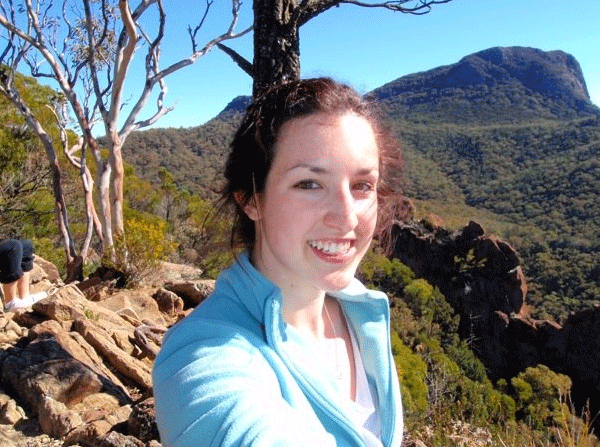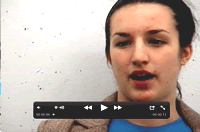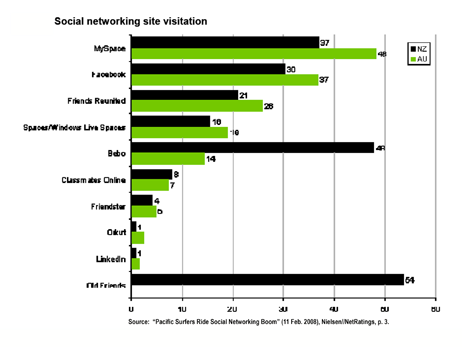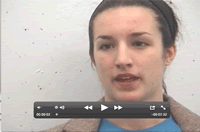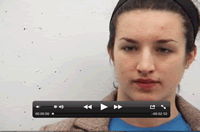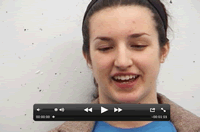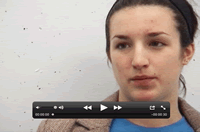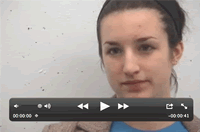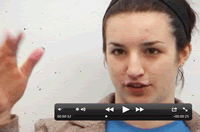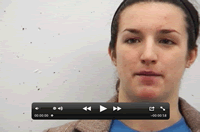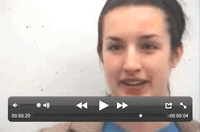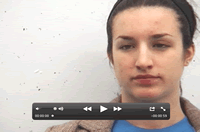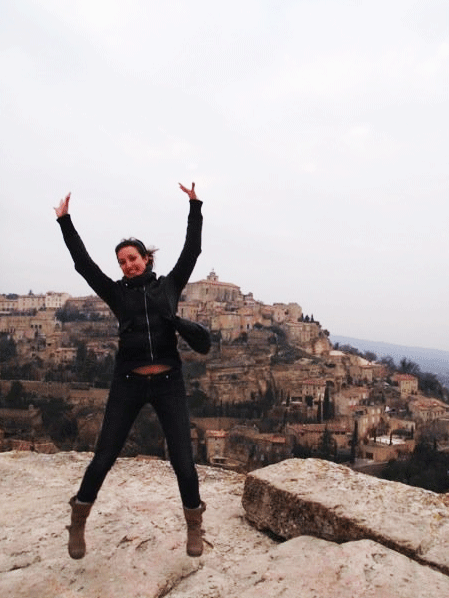digital media & transnational connections: from Sarajevo, Bosnia-Herzegovina, and Sydney, Australia
Cynthia L. Selfe, Gail E. Hawisher, Patrick W. Berry, Gorjana Kisa, Mirza Nurkic, Tessa Kennedy, and Kate Polglaze
Tessa remembers the Macintosh computer her parents bought that provided access to a game—in color.
Click on image for a video introduction to chapter <transcript>.
-
Home
-
Introduction
-
Chapter 1: Digital Literacies, Technological Diffusion, and Globalization
-
Chapter 2: Digital Media & Transnational Connections: From Sarajevo, Bosnia-Herzegovina, and Sydney, Australia
-
Chapter 3: Cultural Designs for Writing Digitally: From Urbana, Illinois, and Afar
-
Chapter 4: Acts of Translation in the Academy and Across National Boundaries
-
Chapter 5: Global Digital Divide: From Nigeria and the People's Republic of China
-
Conclusion
-
Resources
CHAPTER 2: Tessa Kennedy
Tessa Kennedy, born in 1988, grew up in a family that valued reading and education. Her parents, raised and educated in Melbourne, Australia, had both attended secondary school there and, in Tessa’s words, had done “bits and pieces” of university-level work as well before moving to Sydney.
"My parents grew up in Melbourne, as did my grandparents, so the whole family is from there…. They both went on to university, actually…and that's actually something they really wanted us to do as well."Tessa tells us about her parents <transcript>.
"I remember in kindergarten we used to learn a letter a week, and we'd take that letter and we'd learn words…and draw pictures…just to get you familiar with the alphabet…. We used to always take home little books…go through sounding out each letter and word…yeah, my parents used to always do that with me."
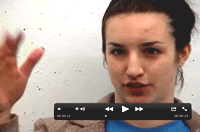
Tessa discusses her early memories of literacy <transcript>.
Given the emphasis Tessa's parents placed on literate activities, the family kept “heaps and heaps” of books around the house and set up a regular routine of reading to Tessa and her two younger brothers before bedtime—a ritual that Tessa remembers with great pleasure. Tessa, who “loved reading,” also recalls the various activities that she did in elementary school and how her parents helped her “sound out” the words in the short books that she brought from school. She also recalls going to the local library and the adventurous feeling of exploring the young adults’ section at the age of 8.
Tessa first learned how to use computers in elementary school, where math and grammar games were integrated into the curriculum as aids to learning during a period in which Australian educators were gearing up to provide students with an increasingly sophisticated introduction to technological environments and to the knowledge economy characterizing many global markets.
However, Tessa's real fascination with computers began at home when she was 6 years old and her father brought home an “ancient Apple Macintosh” in 1994. Tessa was attracted to games like Treasure MathStorm! on this computer, in part because they were in color, and she explored them, primarily on her own, spending hours in front of the screen as she figured out how to play and win.
Tessa continued to read and write in computer environments throughout her secondary education and during the two-year period when she traveled to England between high school and her enrollment in the University of New South Wales. At the time she talked to us, Tessa was completing most of her written papers and reports and many of her assignments at the university online. In addition, she explained, she and many of her friends used resources like online newspapers to keep abreast of world and national news. The most crucial influence that digital communication technologies exerted on Tessa’s life, however, proved to be in the arena of social networking. (Click below to view 2008 social networking statistics in Australia and New Zealand.)
Social networking site visitation (Boyle, 2008, Feb. 12)
In particular, Tessa enjoyed the ways in which e-mail, mobile phone calls, and text messaging allowed her to keep in touch with the web of friends that she cultivated both locally and globally, many of whom themselves studied, worked, or travelled outside Australia.
Each of the communication technologies she used, Tessa explained, had different capabilities and expectations associated with it, and so her choice of which to employ depended on considerations regarding the rhetorical context and purpose of and information involved in the communication; her audience and how she wanted to approach them; her own experience with the technologies; and the material conditions and costs of the exchange.
To explain how useful digital environments were in maintaining her extended networks of friends, Tessa provided an example involving Facebook, noting that this social networking site had changed the way she was able to stay in touch with friends she had met while living in England and those who were currently traveling on their own gap-year experiences. Such online communications, Tessa observed, made “geographical distance so much less relevant” in her life and in the lives of other students who, like her, maintained relationships that crossed conventional geopolitical borders.
Tessa also remarked that communicating in online environments and engaging in conversations that ranged across cultures and societies had sparked her interest in how various kinds of information were carried by written texts and the real effects such information had on individuals as they read these texts.
This sensitivity to the cultural and ethical dimensions of communication, resulting—at least in part—from Tessa’s international travel and her continued conversations online with friends outside her home country, was sustained as a theme throughout her conversation with us, as was her own strong sense of transnational identity and agency, which included a keen awareness of other cultures, perspectives, and peoples.
Tessa described one key incident that helped connect these related themes in our minds, recalling how she had responded when some first-year students had made insensitive cultural and racist comments about Asian students in an online chatroom devoted to their experiences at a week-long orientation program. Tessa explained that the comments had distressed her a great deal because they ran counter to what she liked most about the University of New South Wales—that different people from different backgrounds and countries could come together on the campus and interact productively.
"It was quite distressing to hear [that] those [insensitive cultural and racist comments] actually still exist and to try to figure out why they still exist and…how people can get so sort of locked into their own little worlds."
Tessa recalls an incident of racism and cultural insensitivity <transcript>.
She also described the steps that she and the other group leaders took to address such comments, providing an insightful example of communicative ethics. Central to ethics, as Carrie James and her colleagues (2009) remind us, is responsibility to those we interact with in online spaces and through our various roles from community member to student (p. 14). On viewing the student's troubling comments, Tessa recalled thinking "how people could get locked into their own little worlds." Rather than simply deleting the comments, however, she and the group leaders saw this as a teaching moment. She explains how, with attention to diplomacy, a group leader spoke to the student about the comments as well as what it meant to be a good citizen in this particular online space.
"When deciding how to contact someone…particularly whether to call them or text them, I think it comes down to mobiles being…an integral part of the way we talk to our friends…. The choice between calling them and texting them depends largely on what you want from that exchange."
Tessa discusses how she chooses technologies for communication <transcript>.
"One of things that really interests me is…the way that people communicate…the different levels of language and communication that exist. When you look at something as simple as a text and the number of times that something has been misinterpreted because there's no tone in the text or instant messaging—that just creates dramas left, right, and center."
Tessa discuss communication and miscommunication <transcript>.
"I used to love going down there [to the library] because they had a…young adults' kind of kids' section. We used to always think we were really cool going in there, getting the thick books with no pictures at the age of eight or something."
Tessa remembers going to the library <transcript>.
"The first computer we had was one of those ancient Apple Macs…that my Dad brought home when I was six. I remember playing those little games…Treasure MathStorm!"
Tessa remembers her family's first computer <transcript> and
an image of a 1994 Apple advertisement.
"I think I just sort of sat there and figured it out myself. I think a lot of the time you just sort of sit there and work through the games, work through the programs and figure out what you can do and just exploring, my goodness, [when you're] 6 and 7 years old. That's sort of the most fun way to do it. My dad didn't know much about it anyway."
Tessa discusses learning computers <transcript>
"I don't have time to go and watch TV…. I'll pick up a newspaper if it's around but I don't make a conscious effort. I probably should but I don't…by putting it all online, it just makes it so much more accessible."
Tessa on how she gets the news <transcript>
"I guess I use my computer a lot. I check my e-mail a good five times a day or more. But that's basically because when I sit at home I sort of have to download e-mails. I have to keep…clicking and seeing if there's new stuff."Tessa on computer use <transcript>
"I think the world has shrunk a lot…. I've lived in England and so now some of my friends who I have actually lost contact with for a good four years or something. You can search for them on Facebook…. I've now spoken to them several times in the last couple of months. It's quite ridiculous, 'cause I can see their photos, I can see what they're doing…."
Tessa on the shrinking world <transcript>
For us, this story not only brought into focus the real shaping effects of Tessa’s own experiences as a student with transnational connections but also helped us understand the ways in which these experiences connected this astute undergraduate—on both local and global dimensions—to the growing numbers of students with transnational connections on her own campuses, many of whom had been recruited as part of Australia’s efforts to establish itself as a global educational hub.
Tessa celebrates her travels.

